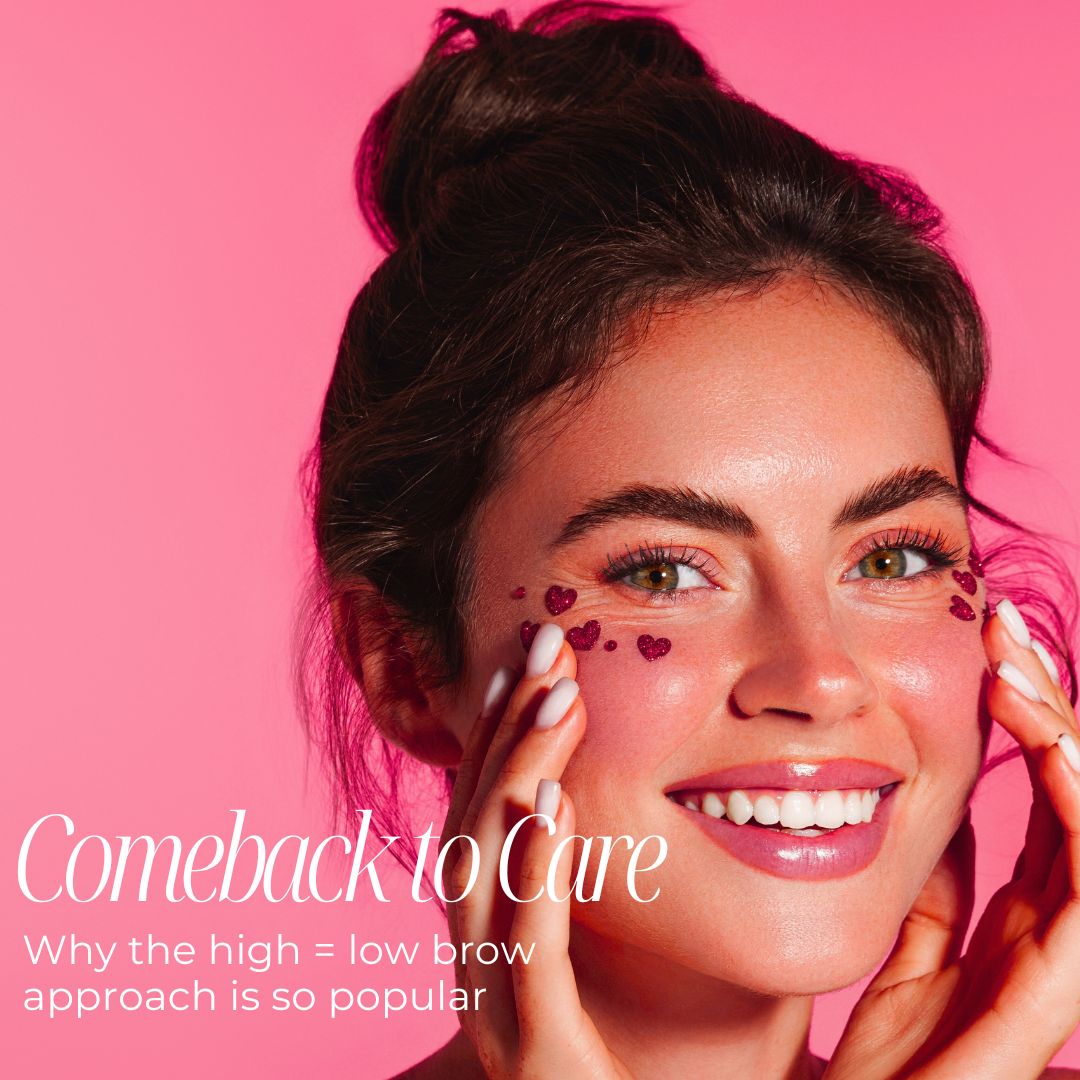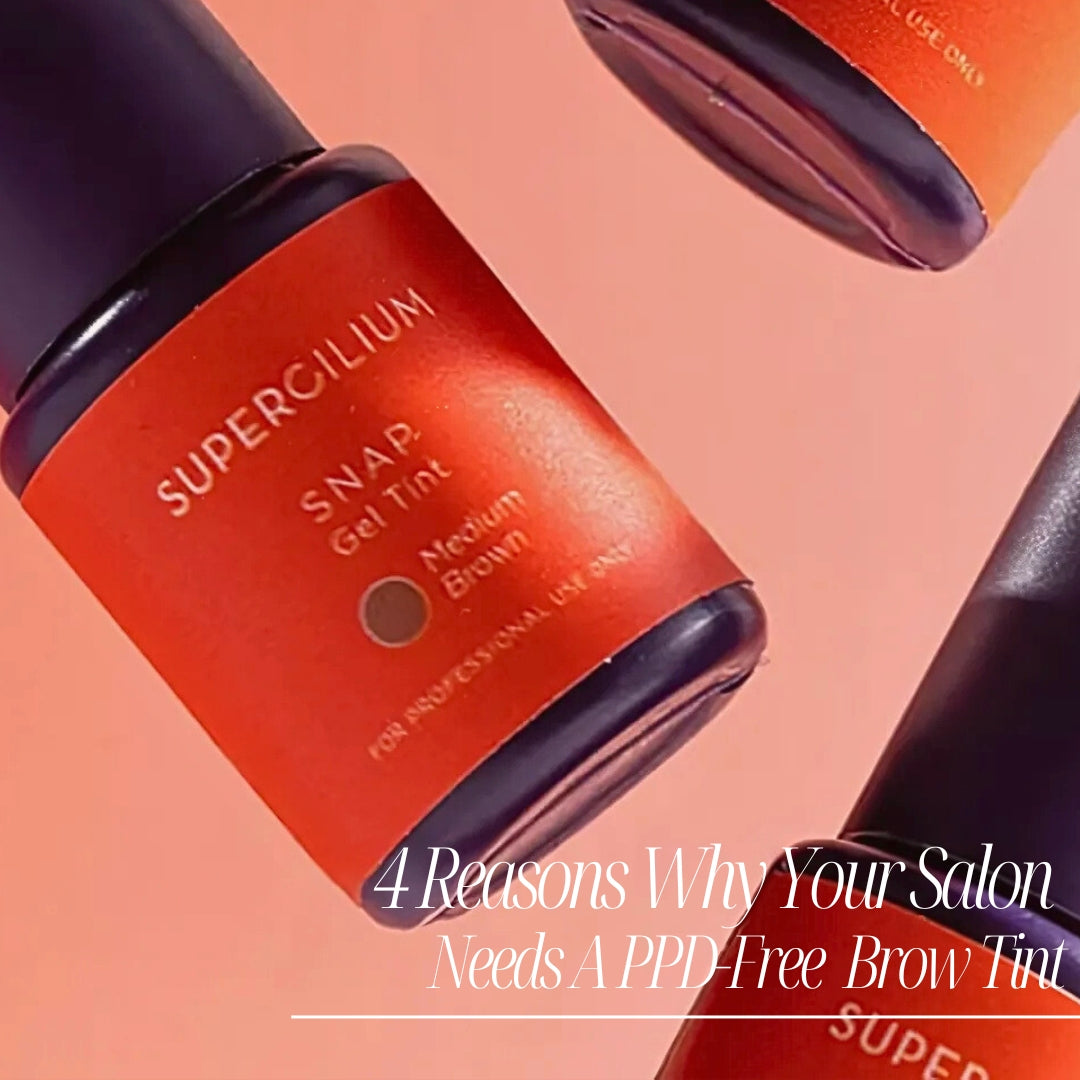Beyond the Breakouts: The Link Between Mental Health, Skin, and Nutrition – featuring Colin Graham
We recently had the pleasure of speaking with Colin Graham—you might know him as @theskin_man, and owner of Precision Face And Body Clinic.

We discussed the connection between body and mind, specifically how conditions like acne, rosacea, and other skin concerns can significantly impact mental health. Colin's experience with acne has informed his career, which allows him to relate to his clients.
“I've been doing skin for seven years now, I learn every day. I suffered from acne most of my life. I'm thinking, out of 10—mine would have been 2 or 3, so it's not much but still annoying, especially from age 13 to 38.”
We discovered some of Colin’s client highlights and couldn’t stop watching because we understood how powerful it is for people to regain their sense of self. Several members of our team at BTI have struggled with various forms of acne, with many instances occurring in adulthood, particularly in our 20s and 30s.
The Cost:
Which is why this project spoke to us. Skin concerns are often dismissed, overlooked, or considered purely a matter of vanity. We may not like to admit it, but how you feel about the reflection looking back at you matters—especially if you no longer recognise that person. It is more than vanity. Skin conditions can contribute to:
-
Low self-esteem
-
Anxiety
-
Social withdrawal
-
Depression
-
Bullying
-
Body dysmorphia
Feeling inadequate can impact various aspects of life and potentially affect jobs, relationships, or social situations because people feel unworthy. Many people become preoccupied with clear skin, and Colin's clients express similar feelings, regardless of condition.
Emotional Effects:
Do you think age plays a role in how people cope emotionally with skin challenges?
“20, 30, or 40 years old—I often ask, ‘Are you nervous?’ They usually reply with a little nod. It’s all normal.”
He notes that generally, everyone experiences similar feelings regardless of age. But teens have a particularly tough time, often because they live on camera and have almost too many choices for a symptom solution.
“Thank goodness I'm in my forties. If I'm honest, it's a minefield for teenagers now.”
How do you navigate conversations with overwhelmed teens?
"I've got teenage kids, so, I just bring it back to how I would explain things to them.”
“I always try to find something they're into and something I'm into as well. Like, recently, a teenager who loved art, and my wife is an artist, so just trying to find something that they are confident about to bring that out.”
Building rapport is more than just small talk; it's about addressing the real issues while engaging with the most open and confident side of them.
Common Mistakes:
Many of us often make mistakes regarding our skincare. Do you see the same mistakes with skin care?
Fueling the fire:
“The big one is using something strong and foamy with salicylic acid in it. And I'm like, right, let's go down to something nice and delicate. Then, 2 or 3 weeks later, they come in and go, ‘Come on, my skin's not sore,’ because it's like they were just throwing fuel onto the fire.”
Lack of consistent and correct at-home care:
At the end of the day, there is only so much you can visit the clinic for treatments. Even with extensive guidance, you are ultimately responsible for the daily care of your skin. Without a proper routine, you are unlikely to see the consistent, desired results.
Combining invasive treatments:
Colin notes that certain treatments, such as Dermaplaning, have been problematic for some clients because it can disrupt the skin barrier, making the skin vulnerable to environmental stressors.
Some ingredients are excellent for protecting your natural skin barrier. One standout ingredient is Beta-Glucan, which hydrates the skin more effectively than hyaluronic acid. It helps strengthen the skin barrier, calm irritation, and support skin repair.
If you’re working with a coach like Colin, they can review the products you’re currently using and customise your at-home routines.
Diet:
When considering skin health, diet is easy to overlook. Many people forget to factor in the importance of sleep and environmental stress, often focusing solely on solutions for their symptoms without addressing the underlying causes. The desire for quick results is understandable, but it's crucial to remember that achieving lasting improvements usually takes time.

“My skin is under control now, but I still have a breakout. Last year, I was in my mid-forties and still had breakouts. Now they are once every few months, and that's where I had to do a wee bit more diving deeper into my food choices.”
Colin explains how small daily choices slip through the cracks.
“When you start to dive into the health side of things, clients fill out the online consultation form and everything looks good, but when you get talking in consultation, you know it is not.”
Would you choose another coffee instead of water?
If you don’t like tap water, switching to bottled water is a step in the right direction. It’s a common-sense approach.
While not a nutritionist, Colin stresses how being mindful about what you consume is crucial.
Hormonal flare-ups happen, and so do bad days, but having honest conversations in consultations and factoring in those days can help—whether it be the chocolate fix, or the fizzy drink, or the social event—but knowing it may cause an effect.
Inflammation Awareness:
Monitoring ingredients/supplements such as those that are known to potentially cause increased inflammation, and introducing ingredients your diet may be missing, is a step that may aid in the skin health process.
Colin often finds high levels of omega-6 in clients when testing them for their 11 essential fatty acids—what he calls: "inflammation oils."
The omega-6 ratio relative to omega-3 could contribute to excess inflammation in the body and skin.
Potentially worsening conditions such as:
-
Atopic dermatitis
-
Psoriasis
-
Acne
Consult with a professional for dietary changes for individuals with pre-existing conditions.
Reframing:
Reframing our perspective is a factor in seeing progress; people focus on the marks, scars, spots, and bumps first instead of other features.
Colin addresses this by sharing progress images with his clients, from their whole process with him.

“They look at the image for 10–15 seconds. I ask, ‘What am I actually looking for?’ Then I tell them: ‘Don’t focus on the spots. Look at the skin—it’s coming back to life.’ They usually say, ‘Whoa, I didn’t even notice that!’”
People are so fixated on the marks that still exist or the spots and bumps that have not yet cleared that they miss the progress they have made.
Don't forget to look back every now and then!
Takeaways & Tips:
-
Simplify your skincare routine: Avoid overactive ingredients, especially if you have exposed spots, marks, and open sores.
-
Be mindful and intentional: Consciously aim to stick with a routine that is easy to keep up.
-
Evaluate your triggers: Track the results and limit the onset of breakouts.
-
Look beyond breakouts: Consider environmental stressors and lifestyle choices.
-
Reframe your focus: Examine the areas between scars and marks.
-
Be accountable: Find accountability partners.
-
Take ownership: Know what to look for and take ownership of what you put into your body.
-
Seek out information: Seek industry and medical professionals and do your research.
Remember, the goal should not be perfection; it should be health.





Leave a comment
This site is protected by hCaptcha and the hCaptcha Privacy Policy and Terms of Service apply.